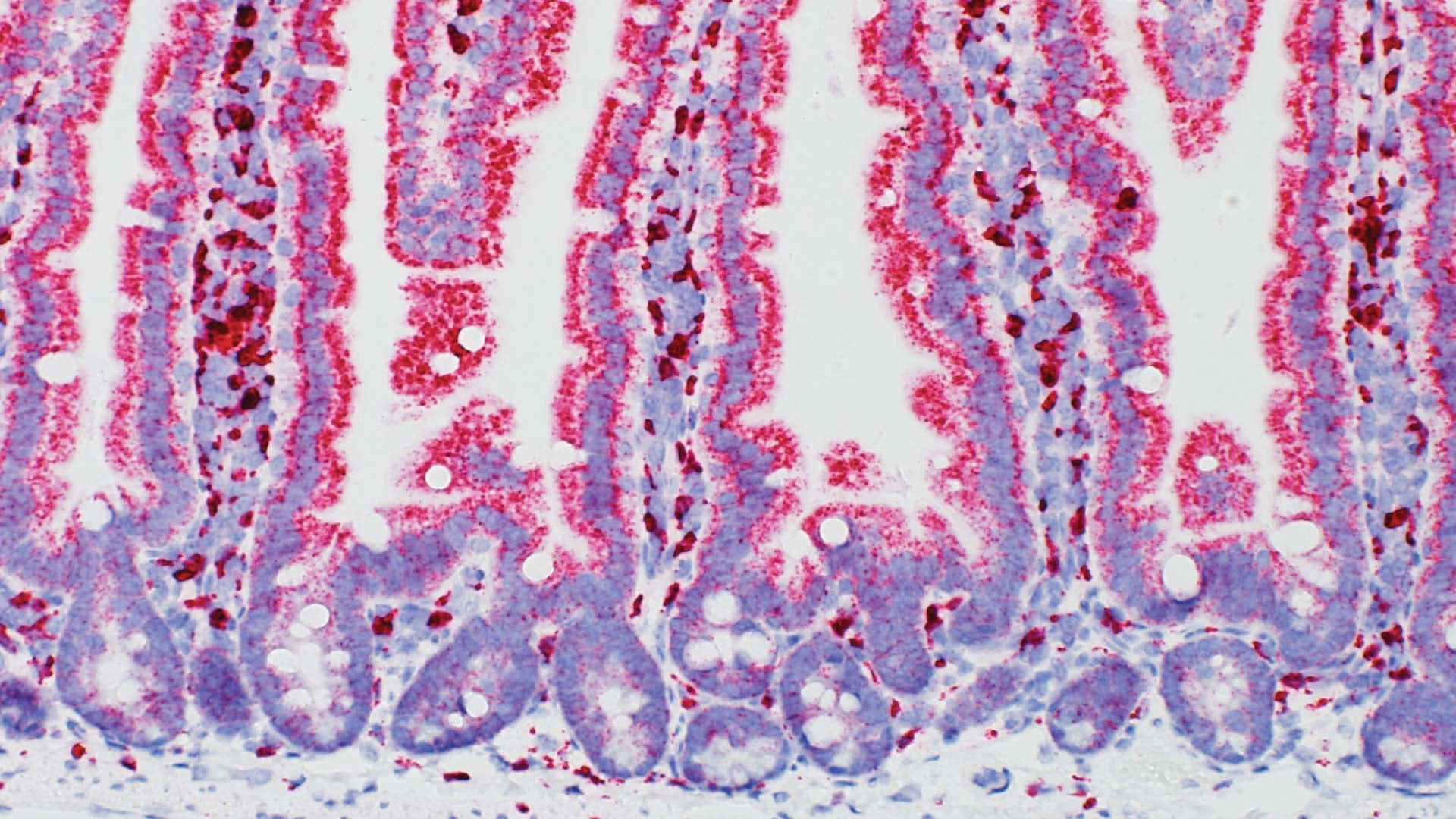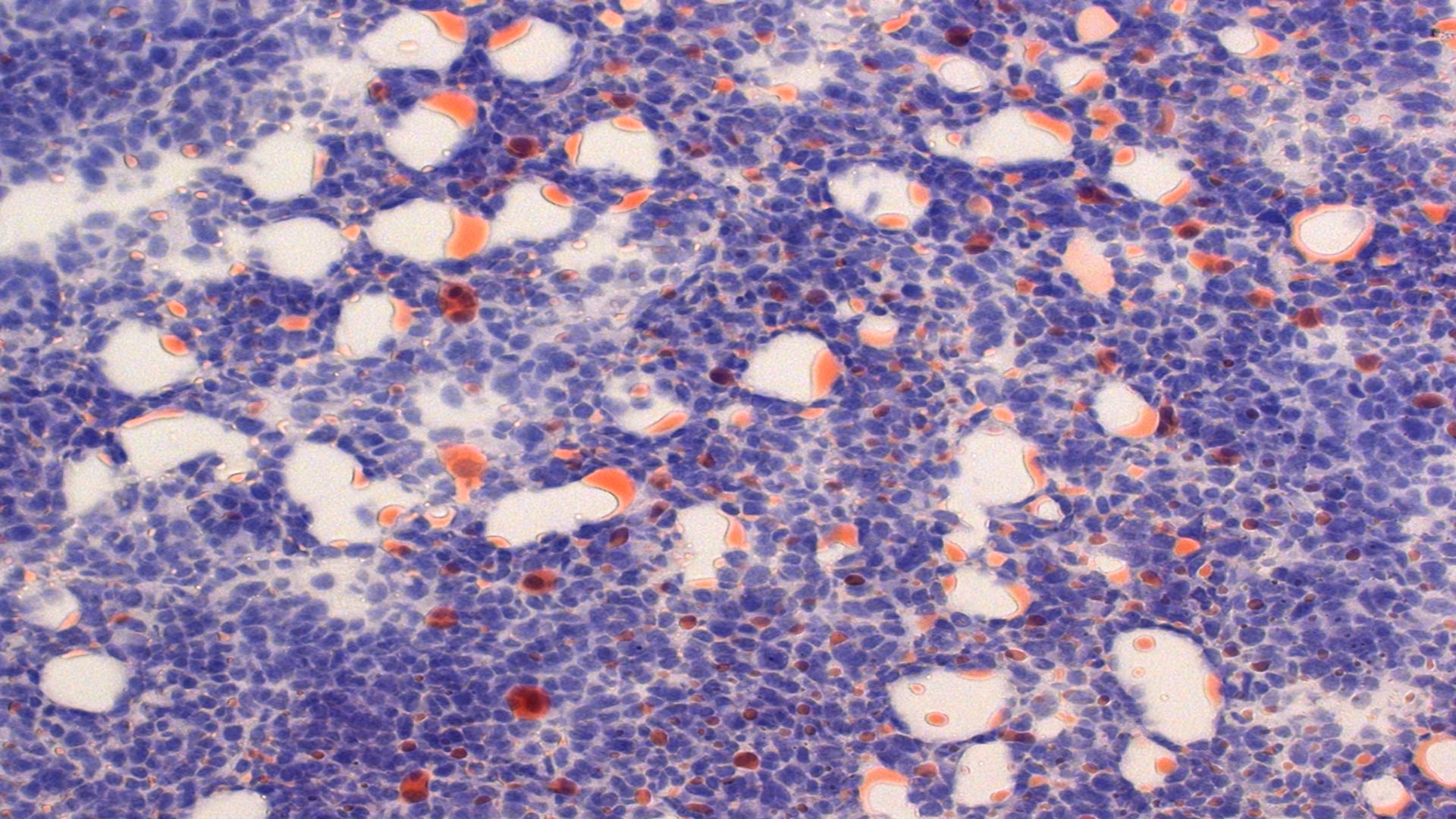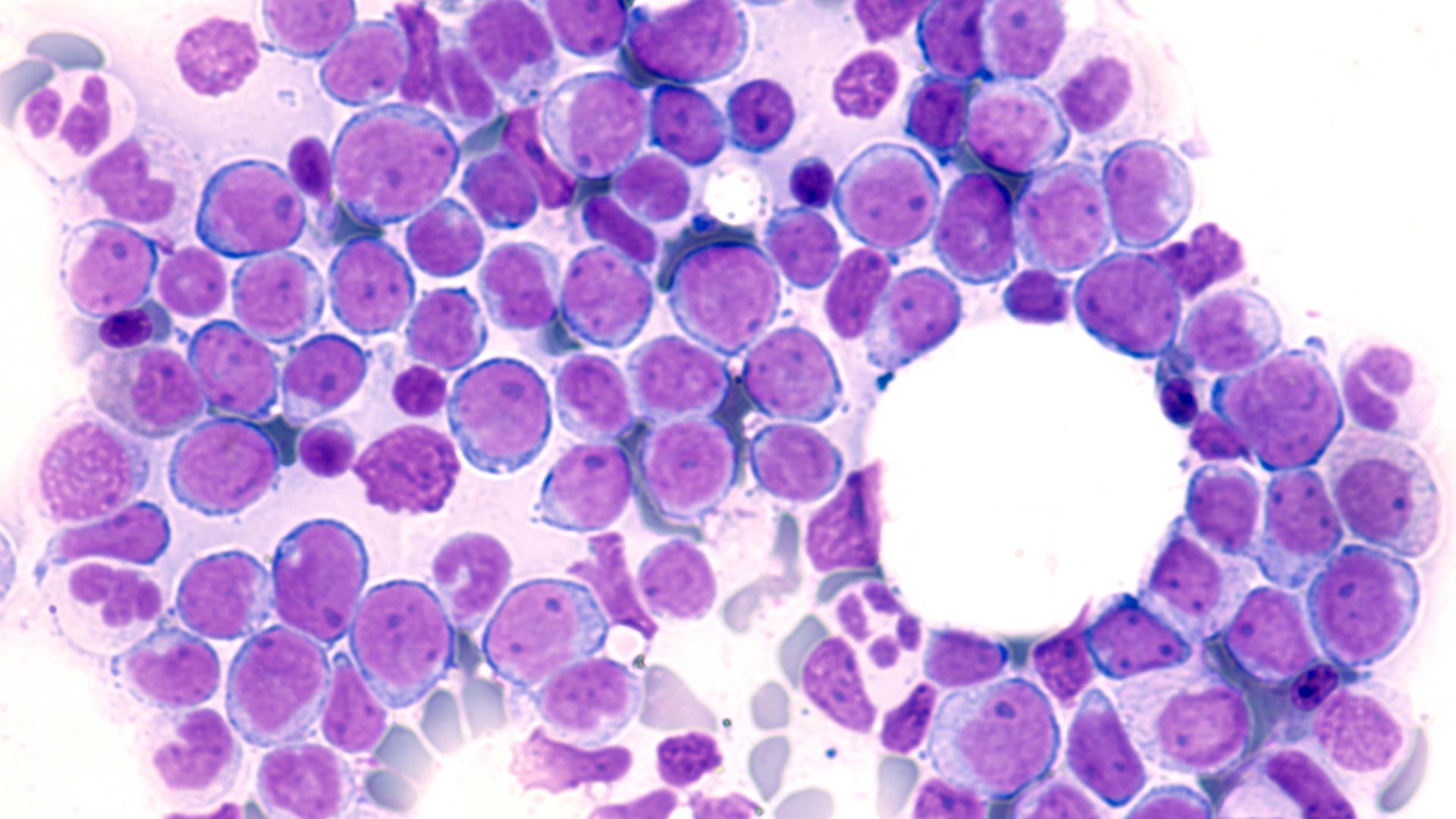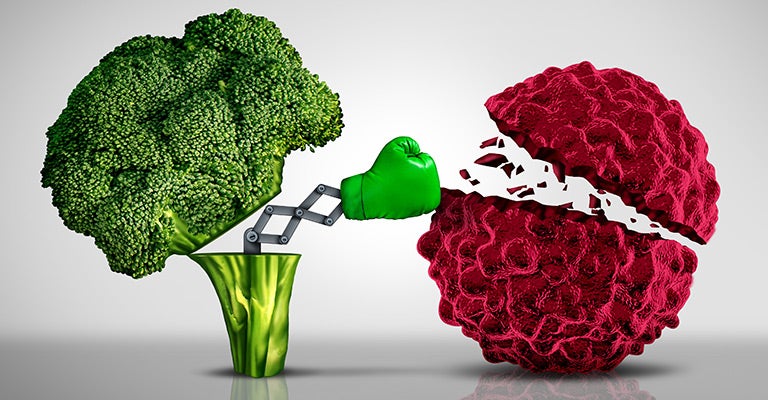Test your science knowledge
CSHL researchers take a whole-body approach to studying diseases like cancer. “Whole-body” means not just your organs but also bodily processes like metabolism. Diet and nutrition have enormous impacts on our health and well-being. They can influence a person’s odds of developing a disease as well as their response to treatment and recovery. Take a bite out of this short quiz to see how much you know about the relationship between diet, nutrition, and disease.
Which one of these diets makes it harder for the immune system to recognize and attack colorectal cancer in mice?

CSHL Assistant Professor Semir Beyaz has found that a high-fat diet masks intestinal cancer in mice by suppressing a cell tag called MHC-II. When these tags were reduced in mice, their immune systems didn’t recognize potentially cancerous cells as a threat and left them alone.
Many of our favorite foods are high in fat and sugar. What is it called when we eat for pleasure rather than survival?
 ©Alvaro - stock.adobe.com
©Alvaro - stock.adobe.com
Hedone was the Greek goddess of pleasure. CSHL Professor Bo Li found that a group of neurons in the amygdala drive mice to eat fatty or sugary foods—even when they’re not hungry. Switching these neurons off reduced overeating and boosted the animals’ physical activity, leading to weight loss and better metabolic health.
Which of these sugars typically fuels mitochondria, the powerhouse of the cell?
 ©nevodka.com - stock.adobe.com
©nevodka.com - stock.adobe.com
Mitochondria usually rely on glucose to produce energy for cells. In mice, CSHL Professor Lloyd Trotman found that treating prostate cancer with mitochondrial inhibitors similar to the diabetes drug Metformin causes a cascading effect. Disrupting their glucose supply leads the cancer cells to literally eat themselves to death.
CSHL Professor Tobias Janowitz has found that a keto diet paired with a corticosteroid may one day be a potential treatment for what condition?

Researchers have found that keto diets can shrink tumors by starving them of the glucose they need to survive. But this also leads to the early onset of a deadly condition called cachexia. CSHL Professor Tobias Janowitz discovered that in mice, pairing a keto diet with a corticosteroid prevented cachexia while still shrinking tumors.
CSHL researchers have found that the nutrient vitamin B6 is not only essential for human health but also relied on by which of these diseases to grow?
 ©David A Litman - stock.adobe.com
©David A Litman - stock.adobe.com
CSHL Assistant Professor Lingbo Zhang has found that Acute Myeloid Leukemia (AML) is “addicted” to vitamin B6. The nutrient drives AML’s rapid growth and metastasis. Zhang and his team are now exploring ways to knock out vitamin B6 in AML without harming healthy cells that also need it to function. This research may lead to new therapeutics for the deadly blood cancer.

Share your Results:
